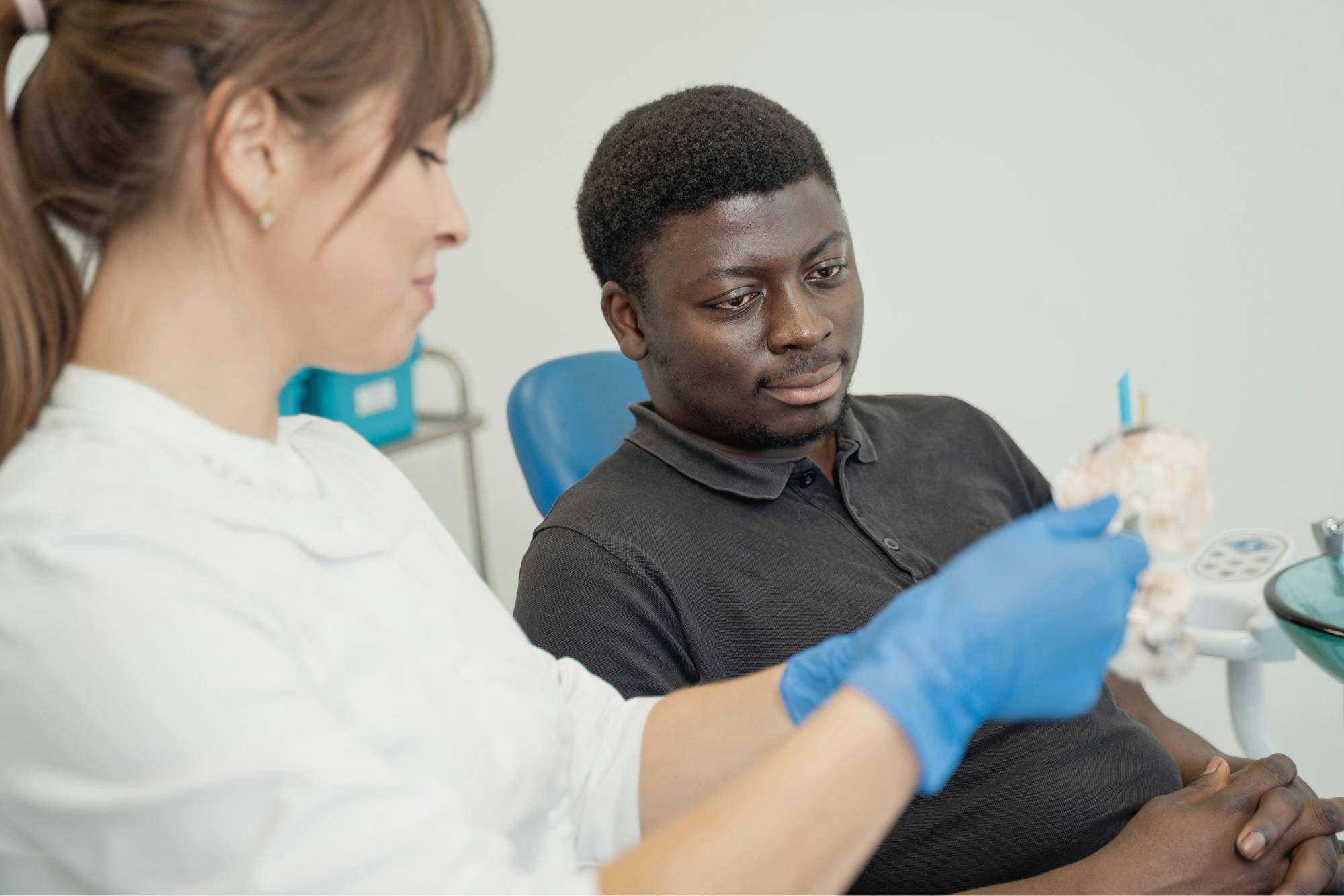1. Brush properly and regularly
Brushing your teeth twice a day is fundamental, but technique matters too. Use a soft-bristled toothbrush and fluoride toothpaste. Follow these steps:
- Angle the brush: Hold your toothbrush at a 45-degree angle to your gums.
- Gentle circular motions: Use small, circular motions to clean the outer, inner, and chewing surfaces of your teeth.
- Two minutes: Brush for at least two minutes each time.
2. Don’t forget to floss
Flossing daily is essential for removing plaque and food particles between teeth where your toothbrush can’t reach. Here’s how to do it correctly:
- Use enough floss: Break off about 18 inches of floss.
- Gentle curves: Curve the floss into a C-shape around each tooth.
- Up and down: Move the floss gently up and down, avoiding snapping or forcing it.
3. Use mouthwash
Mouthwash can help reduce plaque, fight gum disease, and freshen breath. Choose a mouthwash that suits your needs, such as one with fluoride for added protection against decay.
4. Maintain a healthy diet
Your diet plays a significant role in oral health. Limit sugary and acidic foods and beverages, as they can erode enamel and cause cavities. Incorporate these into your diet:
- Calcium-rich foods: Dairy products, leafy greens, and almonds help strengthen teeth.
- Crisp fruits and vegetables: Apples, carrots, and celery can naturally clean teeth and massage gums.
- Water: Drink plenty of water to rinse away food particles and keep your mouth hydrated.
5. Regular dental check-ups
Visit your dentist at least twice a year for professional cleanings and check-ups. Regular visits allow for early detection of potential issues and professional guidance on maintaining oral health.
6. Protect your teeth
If you play sports or grind your teeth at night, consider using a mouthguard. Mouthguards can prevent injuries and protect against tooth wear.
7. Avoid tobacco products
Tobacco use can lead to gum disease, tooth decay, and oral cancer. Quitting tobacco products is one of the best things you can do for your oral and overall health.
8. Recognize warning signs
Be aware of any changes in your oral health. If you notice symptoms such as persistent bad breath, bleeding gums, or tooth pain, contact your dentist promptly.
Practical examples
- Brushing Technique: Jane improved her oral health by switching to a soft-bristled toothbrush and brushing in gentle, circular motions for two minutes each time.
- Healthy Diet: After incorporating more calcium-rich foods and reducing sugary snacks, Mark noticed fewer cavities and stronger teeth during his dental check-ups.
- Regular Check-Ups: Sarah’s bi-annual dental visits helped catch a small cavity early, preventing more extensive treatment later.
Conclusion
Maintaining optimal oral health requires a combination of good habits, a healthy diet, and regular dental visits. By following these essential tips, you can ensure a lifetime of healthy, beautiful smiles. Remember, your dentist is your partner in oral health, so don’t hesitate to seek their advice and expertise.
Discover our latest blog posts
Be sure to not miss out on the latest content



